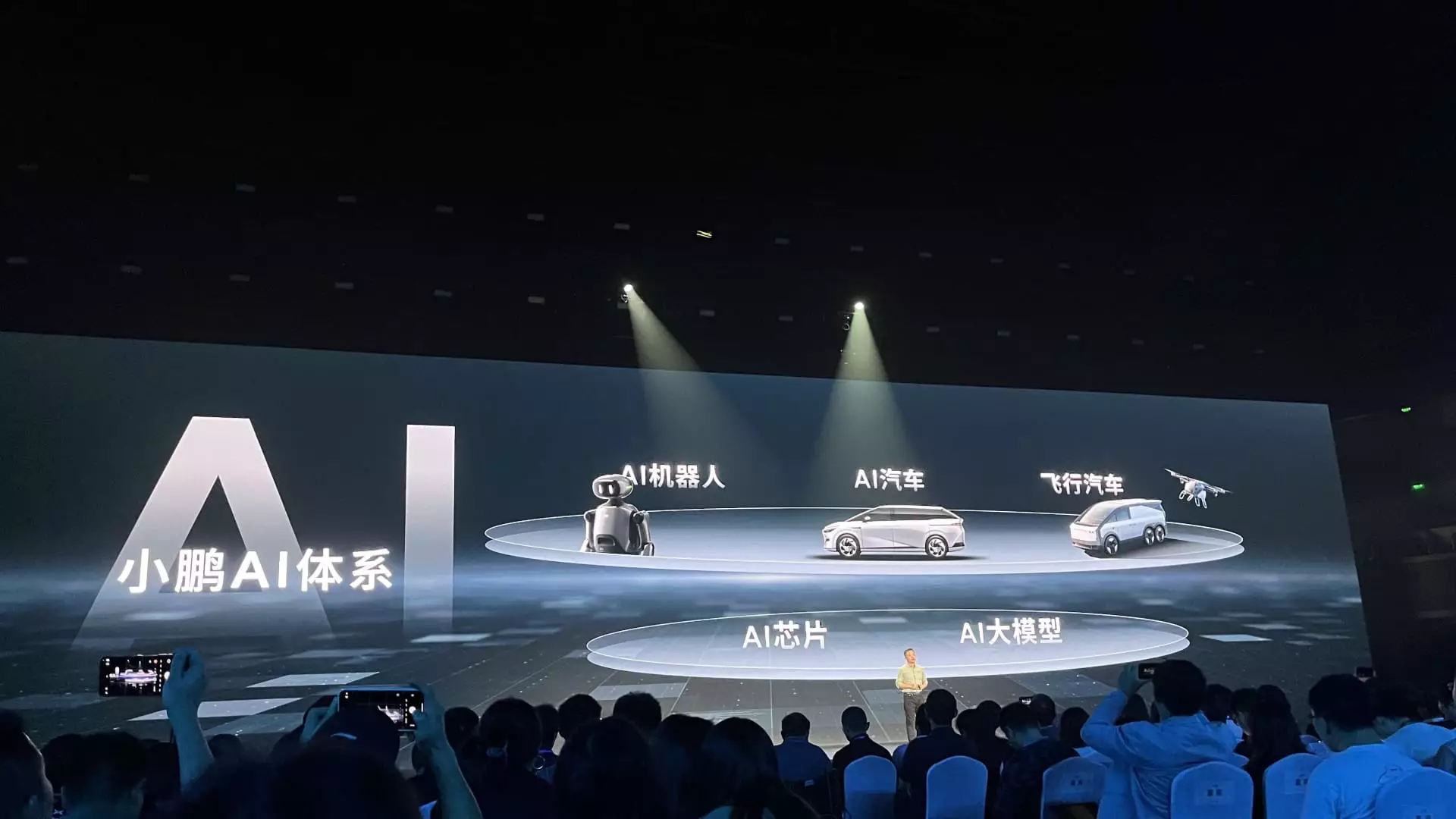In the crowded realm of electric vehicles (EVs), Xpeng Motors is not just another name; it’s a burgeoning force. Over the last several months, the Chinese automaker has catapulted into prominence, delivering more than 30,000 cars monthly since November 2022. This remarkable sales figure raises pertinent questions about the sustainability of this momentum and the broader implications for the EV market. While the company anticipates further growth and increased profitability by the end of the year, its trajectory is not merely the result of serendipitous market conditions.
Xpeng’s products, particularly the competitively priced Mona M03 and the upgraded P7+, are central to its strategy of capturing market share. Unlike many competitors, Xpeng incorporates advanced driver-assist software at no additional cost—an enticing offer in an increasingly competitive environment. However, the question remains: How long can Xpeng maintain this momentum? As with all things in the hyper-accelerated tech world, the rapid gains achieved can be both enlightening and ephemeral.
The Analyst Perspective: Caution Amidst Optimism
Analysts have been quick to respond to Xpeng’s performance, prompting a reevaluation of stock price targets and growth forecasts. Bank of America’s recent upgrade of Xpeng’s stock price target from $18.60 to $27 demonstrates a buoyant, yet cautious, optimism. Their claim that the company’s impressive model pipeline will propel growth through 2025-2026 highlights just how much hinges on consumer acceptance in a notoriously fickle market.
However, a contrasting viewpoint emerges from Barclays, which retains an underweight rating despite raising its price target to $20. This divergence in analyst sentiment underscores the volatile reality of the EV market, where hype can sometimes overshadow the fundamentals. While Xpeng boasts a robust lineup, the ever-present competition, notably from industry titans like BYD, looms large. As BYD aggressively innovates with ultra-fast charging technology and advanced driver-assist systems, Xpeng faces mounting pressure to continually distinguish itself in a crowded field.
The Technology Arms Race: What Lies Ahead?
At the heart of Xpeng’s strategy lies an unmistakable commitment to advanced technology. The company’s longstanding investment in driver-assist systems, complemented by collaborations with tech giants like Nvidia, positions it as a pioneer in the transition from basic features to more autonomous systems. Yet, this technological edge brings with it the inherent risks tied to constant innovation and the potential for obsolescence.
As experts like Shay Natarajan suggest, the Chinese market is on the cusp of a transformative shift toward higher levels of autonomy. This advancement makes it imperative for players in the EV ecosystem—especially newcomers like Xpeng—to adapt swiftly. Failure to offer competitive solutions could mean being outpaced by more established brands. The pressure is palpable; Xpeng’s ability to balance innovation while maintaining its market standing could determine its fate in the evolving landscape where L2 autonomy is becoming a must-have rather than a luxury.
Consumer Reception: The Ultimate Decider
Xpeng’s early ventures were hampered by sluggish sales, which prompted a significant pivot with the launch of its mass-market brand, Mona. This shift arguably breathed new life into its portfolio, enabling Xpeng to tap into a broader customer base. It now stands at a critical juncture: will the latest incarnations of its vehicles earn the consumer trust required to solidify its place in the market?
Despite the clear technological advantages, the ultimate arbiter of Xpeng’s fate will be the consumer. With Chinese consumers growing increasingly discerning, the rapid iteration of models showcased by other automakers amplifies the challenge Xpeng faces. If it struggles to resonate with buyers, even state-of-the-art technology might not be enough to secure its high-flying aspirations.
A Market Reflecting Larger Trends
The dynamic forces at play within the Chinese EV market reflect broader global trends toward electrification and sustainability. Xpeng’s current success story underscores not only technological advancements but also shifts in consumer preferences and regulatory frameworks that support EV adoption. As the landscape evolves, Xpeng’s strategies will likely serve as a litmus test for the future of the industry, offering insights into whether ambitious, tech-driven startups can thrive alongside established automotive giants.
Even as Xpeng navigates the uncertain waters of consumer demand and competitive pressures, its journey is emblematic of broader aspirations within the EV sector. It remains to be seen if the company will achieve the profitability it anticipates, but its trajectory will undoubtedly influence the ongoing narrative of electric mobility in China.

